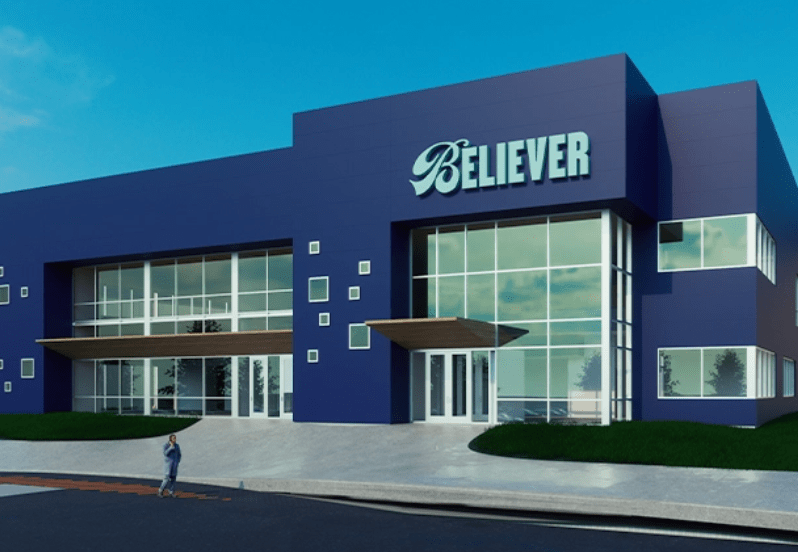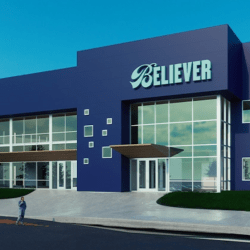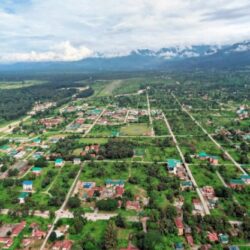Introduction
Believer Meats, previously known as Future Meat Technologies (2018-2022), is a pioneering biotechnology firm from Israel focused on producing cultured meat. The company has advanced the field of lab-grown meat, producing edible products like chicken, lamb kebabs, and beef burgers by cultivating cells extracted from live animals. Based in Jerusalem with its production facility in Rehovot, Believer Meats aims to provide scalable solutions for cultured meat production, focusing on supplying hardware and cell lines to manufacturers rather than directly selling consumer products. This strategic approach sets it apart as a leader in the emerging cultured meat sector.
History of Believer Meats (Formerly Future Meat Technologies)
Founding and Vision
Believer Meats was established in 2018 by Yaakov Nahmias, a biomedical engineering professor at the Hebrew University of Jerusalem, who took on the role of Chief Scientific Officer. His vision was to revolutionize food production by creating sustainable and ethically produced meat through biotechnology. By cultivating meat from cells instead of raising and slaughtering animals, the company aimed to significantly reduce the environmental footprint of meat production.
Early Growth and Investments
In 2019, Future Meat presented its first cultured meat prototype to the public, signaling its readiness to take on the growing demand for alternative protein sources. Later that year, the company raised $14 million in funding to build its pilot production plant, with a target of bringing its products to the market by 2022. In its early stages, Future Meat Technologies was recognized alongside Memphis Meats and Just Inc. as one of the most advanced companies in the cultured meat space, primarily due to its progress in building pilot plants.
Expansion and Breakthroughs (2020-2021)
In 2020, Future Meat revealed its ambitious plan to reduce the cost of cultured meat production to $10 per pound by 2022. Its focus on cost efficiency was crucial in making lab-grown meat more accessible and competitive with traditional meat products. This commitment led to the completion of its pilot plant in Rehovot, Israel, in June 2021. Capable of producing 500 kilograms of cultured meat daily, this facility represented a major step toward the commercial viability of lab-grown meat.
In 2021, the company attracted significant investor interest, raising $347 million in a Series B investment round. This financial boost not only underlined Future Meat’s leading position in the field but also provided the resources necessary to scale its operations and refine its technology further.
Rebranding to Believer Meats (2022)
In November 2022, Future Meat Technologies underwent a significant rebranding, adopting the name Believer Meats. The new name reflects a broader vision and belief in the future of sustainable, lab-grown meat production. While the company continues to innovate in cultured meat technology, the rebranding emphasizes its commitment to transforming the global food industry by providing cleaner, more sustainable alternatives to conventional meat.
Technology and Production Methods
Cell Cultivation and Fermentation
Believer Meats uses a unique process to produce its cultured meat. Cells are extracted from live animals, such as chickens, and are then cultivated in stainless steel fermenters. In this environment, the cells reproduce and develop into edible tissues. The company’s innovative approach allows it to achieve reproduction rates ten times faster than some of its competitors, while also reducing environmental impact. The firm has reported that its method generates just 20% of the greenhouse gas emissions compared to traditional meat production, using 1% of the land and 4% of the water required for conventional livestock farming.
Cost Reduction and Efficiency
In 2021, Believer Meats successfully reduced the cost of producing cultured meat. For example, the production cost of a cultured chicken breast dropped from $7.50 to $1.70, while a pound of cultured chicken cost approximately $7.70. This reduction in costs marked a significant achievement, positioning Believer Meats as a leader in making lab-grown meat more affordable and accessible to consumers.
Key Products and Market Focus
Cultured Chicken, Lamb, and Beef
Believer Meats has primarily focused on producing cultured chicken, given its broad market appeal and scalability. The company is also developing cultured lamb kebabs and beef burgers, expanding its product offerings to cater to diverse consumer preferences. These products are grown from animal cells and cultivated to resemble conventional meat in both taste and texture, offering a familiar experience to meat-eating consumers who may be looking for sustainable alternatives.
Supplying Manufacturers
Rather than focusing on direct-to-consumer sales, Believer Meats has chosen to supply the necessary hardware and cell lines to manufacturers of cultured meat. This approach allows it to scale its impact more efficiently by enabling other companies to produce cultured meat, leveraging Believer Meats’ technology. The company’s goal is to become a vital player in the cultured meat supply chain, supporting the growth of the industry as a whole.
Sustainability and Environmental Impact
Believer Meats is not just focused on cost reduction; it also prioritizes sustainability. The company’s production process requires significantly fewer resources compared to traditional animal farming. By reducing land, water, and energy usage, Believer Meats aims to address some of the most pressing environmental issues associated with meat production. According to the company, its method generates only a fraction of the greenhouse gases emitted by traditional animal agriculture, making it a more environmentally friendly option for meat production.



Future Outlook and Challenges
Scaling and Regulatory Hurdles
While Believer Meats has made significant strides in reducing production costs and improving efficiency, scaling its operations to meet global demand remains a challenge. The company continues to work on increasing the production capacity of its facilities while ensuring that its products meet the regulatory standards required for commercialization in different markets. Regulatory approval is a key step in the company’s journey toward bringing cultured meat to the mass market.
Consumer Acceptance
Another challenge for Believer Meats and the cultured meat industry as a whole is gaining widespread consumer acceptance. While lab-grown meat is an exciting technological advancement, convincing consumers to switch from conventional meat to cultured alternatives will require addressing concerns about taste, safety, and ethical considerations. However, as sustainability becomes a more pressing global issue, consumer interest in alternatives to traditional meat is likely to grow.
Conclusion
Believer Meats has positioned itself at the forefront of the cultured meat revolution. From its founding as Future Meat Technologies in 2018 to its rebranding in 2022, the company has consistently pushed the boundaries of biotechnology to create sustainable, lab-grown meat. By focusing on reducing production costs, improving efficiency, and minimizing environmental impact, Believer Meats is playing a pivotal role in shaping the future of the food industry.
FAQs
- What is Believer Meats?
Believer Meats is a biotechnology company that produces cultured meat by cultivating animal cells. It was previously known as Future Meat Technologies. - When was Believer Meats founded?
The company was founded in 2018 by Yaakov Nahmias, a biomedical engineering professor. - What products does Believer Meats offer?
Believer Meats produces cultured chicken and is working on lamb kebabs and beef burgers. - Where is Believer Meats based?
The company is headquartered in Jerusalem, Israel, with its primary production facility in Rehovot. - What is the environmental impact of Believer Meats’ production process?
The company’s production process generates 20% of the greenhouse gases compared to traditional meat production and uses just 1% of the land and 4% of the water. - Why did Future Meat Technologies rebrand to Believer Meats?
The rebranding in November 2022 reflected a broader vision for the company’s future and its belief in transforming the food industry through cultured meat.






